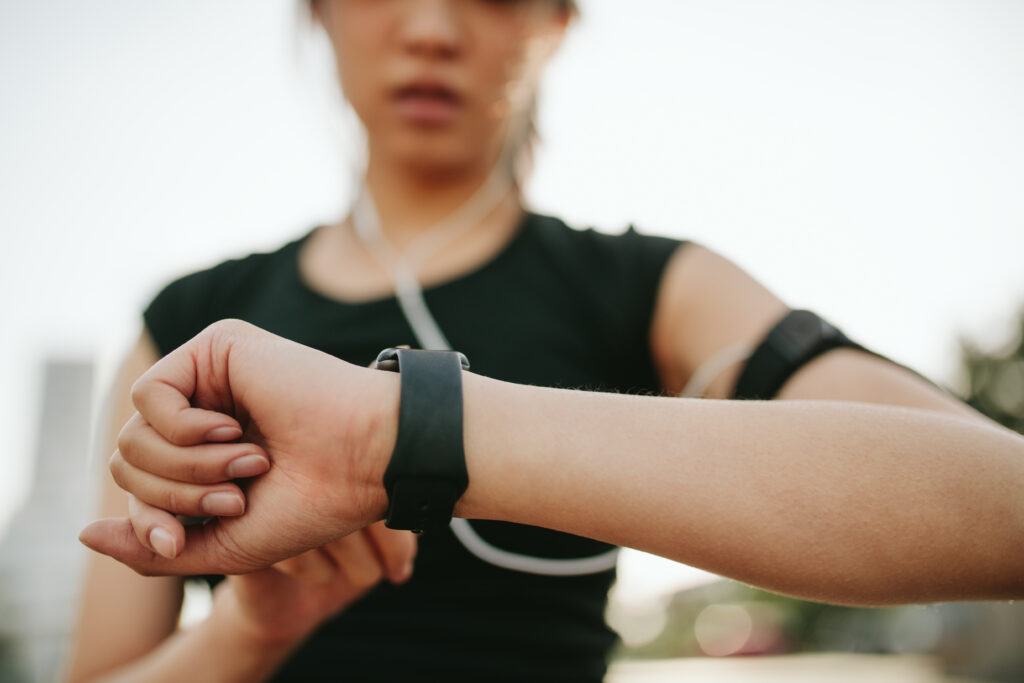
Do MORE in LESS TIME with 2 Skills
Reading Time: 5 minutes Productivity is about efficiency. Here are 2 tricks to up your game.
My first wearable device was a FitBit HR that my husband gave me for my birthday in 2015. Since then I’ve also owned an Apple Watch Series 3, and currently own a Series 7.
I recognize that these are now probably among the most basic fitness tracking devices. Everything from rings to subscription-based bracelets are now available for those who want to measure and track their diet and exercise habits, ostensibly with the goal of improving physical health.
But what I started to notice was that those hourly nudges to get up and move and the passive-aggressive suggestions that I “check my rings” were making me focus more on the numbers and less on my body. And it got me thinking about periods of my adult life when I felt the most fit, healthy, and energized. I realized that during those periods, I actually wasn’t tracking anything, and I didn’t own a wearable device.
Looking back at my physical stats at the time, I was actually healthier, had better blood work numbers, a smaller waist circumference, and better body fat percentage than I have now after a year of wearing a fitness device more or less daily.
I also recall having amazing energy levels and always feeling like my workouts were more than enough. I never questioned whether I was working hard enough, long enough, burning enough calories or hitting a high enough heart rate.

In contrast, recently I’ve noticed that I feel disappointed if I burn fewer calories during one workout than another; this is true even when that should be the expected outcome. For example, generally you will burn fewer calories doing upper body resistance training than you will during a lower body training session. On those days I find myself feeling like I need to “make up for” not having burned those calories during my workout, whether that’s by adding some cardio or going for an afternoon walk.
I’m not saying that it’s a bad thing that a wearable device motivates to me to take an afternoon walk. . .however, I do think it’s a bad thing that a compulsion to close the red ring is what makes me take a walk rather than cues from my body that it feels like getting some fresh air and movement.
I talk a lot about how by your mid-thirties you’ve disassociated yourself from your body in multiple ways, and I was starting to think that my watch was making that problem worse.
This compulsive behavior, feelings of guilt and inadequacy based on the metrics from my fitness tracker really made me take a step back to consider the mental toll it was taking, and whether it was inhibiting my physical health and overall well-being.
I looked into some scientific studies that have been conducted examining the impact of wearable devices on mental health. Much of the evidence that supports their use demonstrates the benefits of empowering the individual with knowledge about their health and fitness levels. Having immediate and private access to basic metrics about their diet and exercise motivates many individuals to take control of them and improve them if necessary. This study found that over time, this has a net positive impact on their mental health, even if at first there is an increase in psychological distress as they’re faced with the challenge of improving their fitness.
On the other hand, there are many studies that show this gradual climb to mental health through self-empowerment isn’t true for everyone.

I will openly admit that there have been mornings when I’m down in the basement ready to lift and realize that I’ve left my watch on its charger two floors up where my husband is still asleep. And I have interrupted my workout to go upstairs and get my device so the move points would count. If you worked out without wearing your device, did you even work out?
This mentality of needing to “get credit” for the good things I do for my body really caught me off guard. Last week I talked a lot about goal setting and the way people tend to seek external accolades as validation, or “credit”, for ways they’re trying to improve themselves. And at least in that scenario, it’s expected that people want approval from other people as part of maintaining their place within a social construct.
But what benefit was I getting from seeking validation from a technological device?
This is where the line of demarcation is drawn: Are you really using your wearable device to help you better track and understand your own physical fitness, or is it just one more way for you to get a pat on the back because you checked a box?
If I step back and just look at what’s best for my body and my mental health, I can think of a few things right off the bat that my device actually make worse.
The first is that they don’t account for rest days.
I’ve read blog posts about how you can manually go into the health app on your phone and essentially trick your watch into thinking you’ve closed your Move ring so you don’t disrupt your activity streaks.
If that isn’t a hard and fast example of the type of obsessive behavior I’m talking about, I don’t know what is.
Regardless of how you get your exercise, rest days are essential. But my watch doesn’t know what is and isn’t a rest day. So on days that I’m not clocking in to record a workout, my watch tells me to check my rings or review my activity levels for the day as a gently reminder that I need to get off my ass.
It is ABSURD the pressure I feel to do exactly that because a watch told me to.

The second thing that comes immediately to mind when it comes to ways my wearable negatively impacts my mental health is the sharing feature. I have a close friend who has lived out of state for a few years now. She works hard at staying fit, training for marathons and jiu jitsu among weight training and other types of activity. We started sharing our workouts with each other as a fun way to stay in touch and keep each other motivated even though we’re far apart.
I tend to exercise in the mornings, while she tends to find time after work in the evenings.
Even if I had what I felt was a great workout and exceeded my Move goal throughout the day with extra activity around the house or outside, if I got a notification that she’d had a massive workout and had blown past what I’d achieved for the day, my negative self-comparison would kick in and suddenly what I’d thought was a great day activity was no longer good enough.
The third feature that knocks my mental health is the reminder to stand up. First of all, I question whether there really is any benefit to standing up for one minute out of an hour aside from getting one more point toward closing your blue ring. And on days when I’m in long meetings, on a roll with a podcast or editing a video, the reminder is nothing but a distraction. It pulls just enough mental energy to be annoying, like a fly that won’t leave your entree alone at an outdoor patio.
With all of this in mind, I decided a week ago to stop wearing my device.
To hear how that went, and my final thoughts on whether wearable devices are good for us or not, check out the latest Fixing Fitness with Kelly podcast.

Reading Time: 5 minutes Productivity is about efficiency. Here are 2 tricks to up your game.

Reading Time: 5 minutes We all see them and want to know their secrets. Here are 5 of them.

Reading Time: 4 minutes If you’re at your wits’ end with weight loss, check this out.